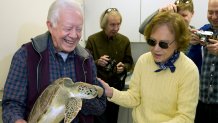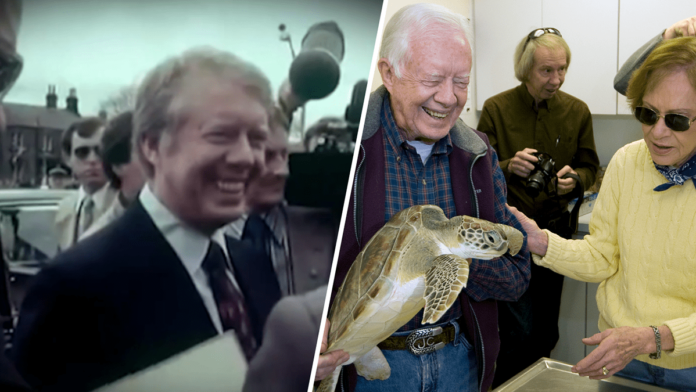As the country mourns the loss of former president Jimmy Carter, his imprint on South Florida can still be seen in two of Miami’s largest immigrant groups, the Cuban and Haitian communities.
The 1980 Marielle boat lift happened during his presidency with more than 100,000 Cuban immigrants arriving in South Florida in a span of about six months.
“For people in Miami, certainly Cuban Americans, really remember Jimmy Carter and his time as president during Mariel because he said that he would welcome with an open heart and open arms any of the people coming from Cuba,” NBC6 political analyst Sean Foreman said. “That migration caused a lot of social unrest and ultimately led to him losing re-election in 1980 to Ronald Reagan.”
While some Cuban Americans appreciate Carter’s open arms policy, his friendship with Fidel Castro made many in Miami’s exile community irate.
Carter traveled to Cuba two times in his post-presidential years, first in 2002 making history as the only sitting or former president to visit the Communist Islands since Castro’s revolution. That trip included diplomatic talks regarding human rights and personal and political freedoms.
Carter visited again in 2011, this time at the invitation of Raul Castro and again explored ideas as to how to warm relations between Cuba and the United States.
As the country mourns the loss of former president Jimmy Carter, his imprint on South Florida can still be seen in two of Miami’s largest immigrant groups, the Cuban and Haitian communities.
In Little Haiti, President Carter was seen as a friend. He traveled to Haiti for humanitarian and political purposes, helped negotiate a peace agreement between political factions and his involvement even led to freedom for political prisoners.
Professor Jean-Claude Xulien was one of them, thrown in jail for criticizing the Duvalier dictatorship, then freed after Jimmy Carter’s inauguration.
While president Carter fought for human rights while a dictator ruled in Haiti, after his presidential years he remained involved monitoring Haitian elections and helping rebuild after an earthquake devastated the country back in 2010.
“When you say Carter, I say human rights. You know, the concept of human rights is very popular in Haiti because of Mr. Carter since 1980,” Xulien told NBC6 last year.
The former president was known for spending his post-White House years as a champion of human rights and public health.
Some feel Carter accomplished more as an ex-president, traveling the world as an advocate for peace.
He carved out a reputation as a peacekeeper and a promoter of democracy. He observed elections all over the world to include controversial contests in Venezuela where he once described the election process there as quote the best in the world.
Carter carried Florida when elected president back in 1976 and his presidential legacy was eventually doomed by a number of foreign policy failures, most notably the Iran hostage crisis.
During his administration the U.S. economy tanked and an energy and gas shortage gripped the nation.

Andy Newman/Florida Keys News Bureau
When he announced that cancer spread to his brain he appeared upbeat and talked about his optimism and that’s also when America’s 39th president told reporters quote “I have had a wonderful life.”
“Jimmy Carter is going to be remembered in a positive light and that’s from the totality of his life and his career,” Foreman said.
“Jimmy Carter was the living embodiment of Democratic values, but lived a life that truly transcended politics,” a statement from the Florida Democratic Party read, in part. “There will never be another president quite like Jimmy Carter — but we can honor his memory by rededicating ourselves to public service, patriotism, and peace.”
